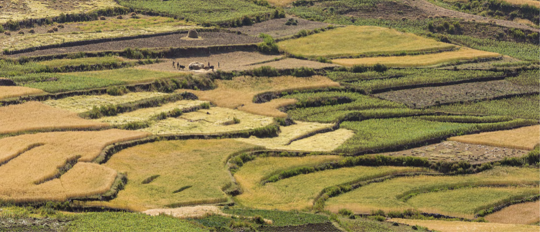Despite being a part of national government planning, large-scale agricultural investments in Ethiopia have not been meeting expectations. Focusing on Gambella region in southwestern Ethiopia, this policy brief examines the reasons why, and proposes three policy actions to improve the situation.
Three policy actions required
Despite being a part of national government planning, large-scale agricultural investments in Ethiopia have not been meeting expectations. Focusing on Gambella region in south-western Ethiopia, this policy brief examines the reasons why, and proposes three policy actions to improve the situation. These actions involve invigorating the three pillars of the regional land administration system – land policies, land information, and institutional arrangements – to strengthen the four functions of land administration and management: land tenure, land value, land use, and land development and control.
Concretely, and following a Capacity Needs Assessment (CNA), it is recommended that the government authorities in Gambella
1. Develop the required legal instruments – Gambella National Regional State issued Proclamation 201/2021 but has not yet developed the regulations and directives stipulated under Article 59.1 and 21.1–21.6. Experts at the grass-roots level urgently need these regulations and directives to guide the implementation of the proclamation.
2. Establish a robust regional database system – Spatial data determination, processing, storing, and dissemination are at a very rudimentary stage. Other regions are using software created with development partners at the federal level, such as the Commercial Agriculture Management Information system (CAMIS) and the National Rural Land Administration Information System (NRLAIS). These systems also have to be available and functional in the Gambella region at their full capacity. Recently the GIZ has installed the CAMIS software at regional office but its usage needs to be strengthened.
3. Renovate the institutional framework – To unleash the potential of agricultural investment to contribute to inclusive sustainable development in the region and in the country in general, the institutional arrangement must be fit-for-purpose and have sufficient human resources, both in quality and in quantity.
Click ![]() GIZ RGIL Policy Brief Gambella.pdf to read the full policy brief
GIZ RGIL Policy Brief Gambella.pdf to read the full policy brief

